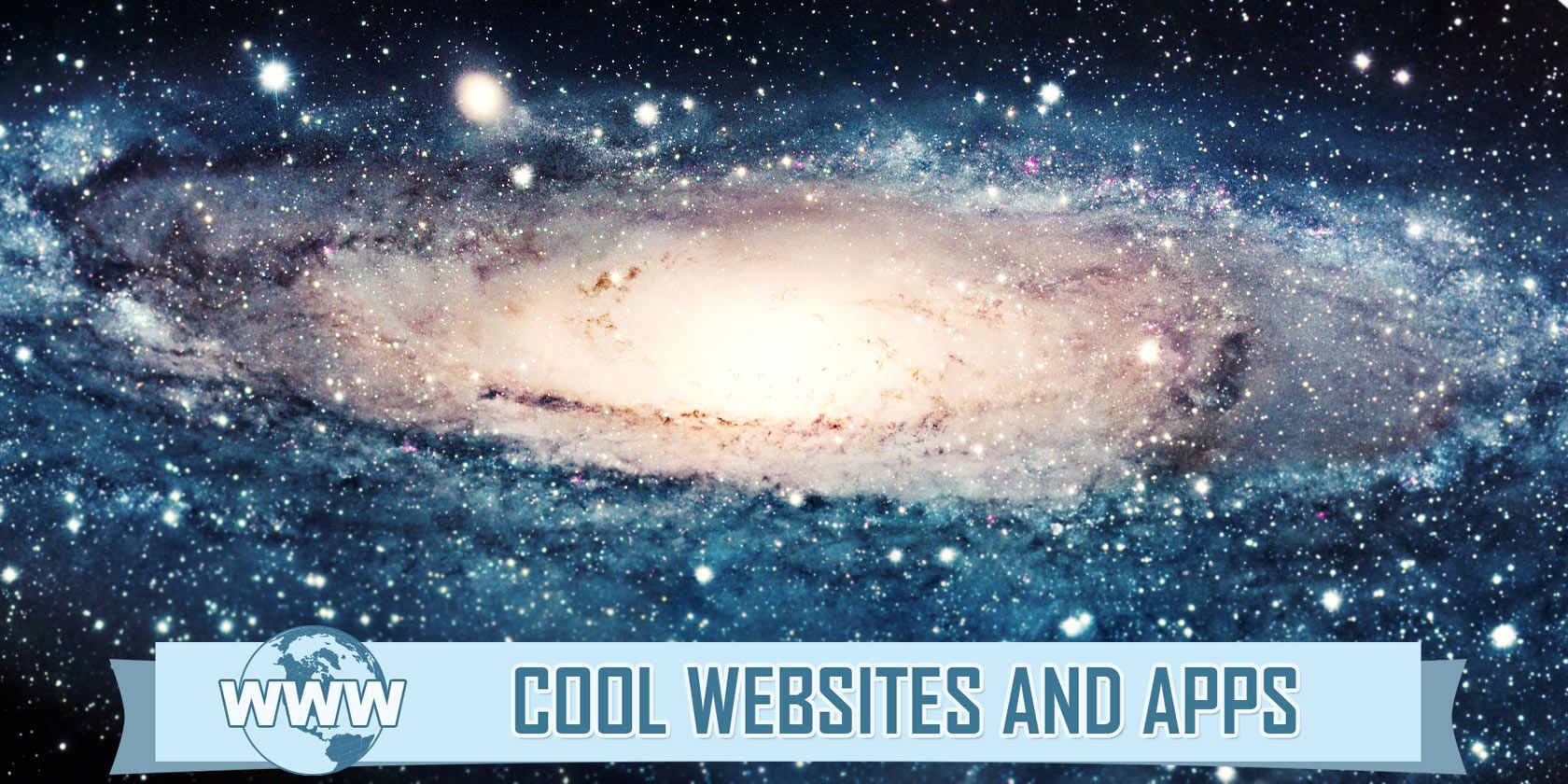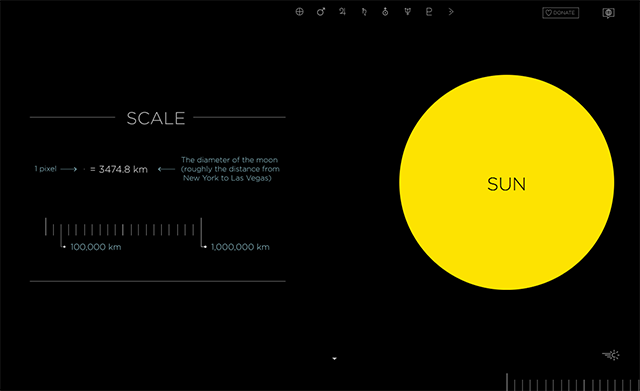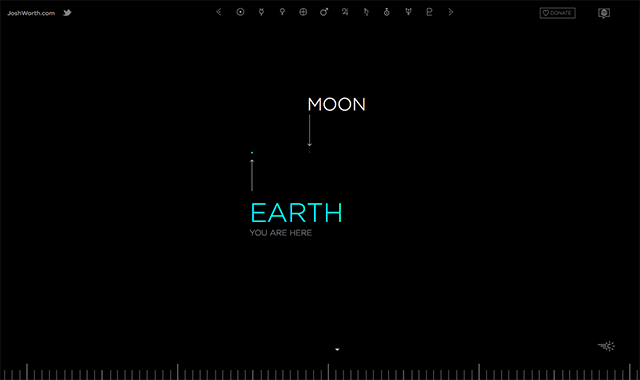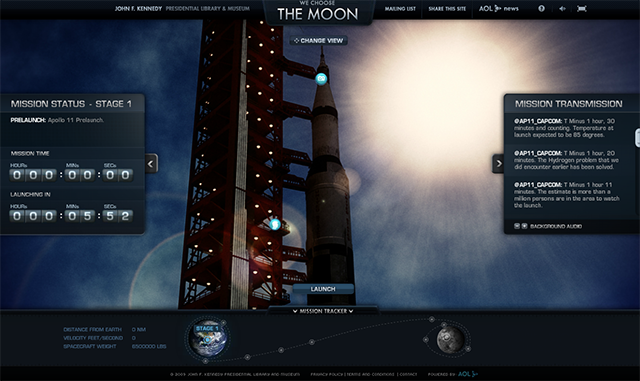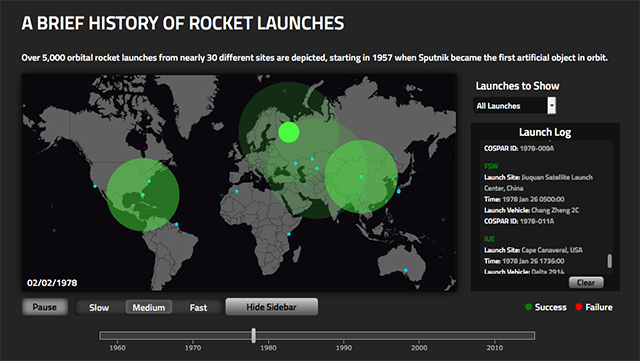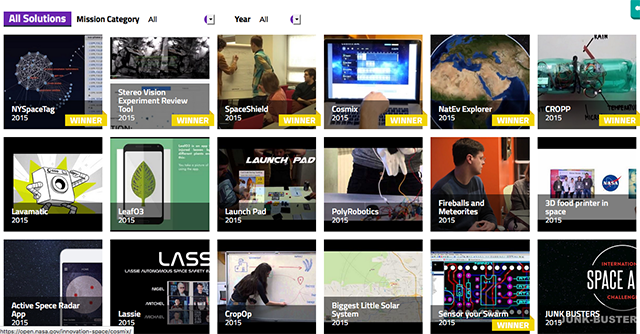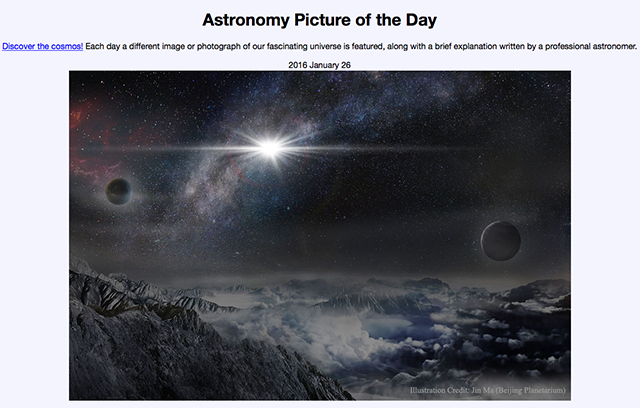Have a passion for astronomy? Today Cool Websites and Apps gives you a chance to travel the solar system by scrolling. Can your fingers handle it?
There are some amazing astronomy websites on the web, but we just keep finding more. Today you can relive the Apollo mission, witness the history of rocket launches, dive into NASA's data archive and even see if your fingers can hold up long enough to scroll past Pluto. It's not a planet, but it's really really far.
If The Moon Were Only One Pixel: Keep Scrolling to Put Earth in Context
Humans aren't psychologically equipped to comprehend the vastness of the cosmos, an inadequacy Douglas Adams hilariously skimmed the surface of in the Hitchhiker's Guide novels.
Space is big. You just won't believe how vastly, hugely, mind- bogglingly big it is. I mean, you may think it's a long way down the road to the chemist's, but that's just peanuts to space. -- Douglas Adams
The point: it's really hard to describe just how big space is. But visualizations can help – especially ones that leave your fingers sore from scrolling afterwards.
This site lets you scroll from our sun to all the known planets in the solar system. But this isn't like those pictures you've seen before: everything is to scale, which is to say that it's mostly just empty space. Just getting to Mercury seems to take forever, and I'll be honest: I gave up before I got to Saturn. Can you do better?
I'm showing screenshots from the bits that actually have planets, but to be clear you'll spend most of your time scrolling through empty space (with a bit of text to kill the time). It's not called a "tediously accurate scale model of the solar system" for nothing, but if you scroll through this thing I will gladly name you today's Champion of The Internet™.
We Choose the Moon: Recreation of the First Moon Landing
Understanding the vastness of the solar system might help explain why we've never managed to get humans further than the moon. But the moon is 384,403 km (238,857 miles) away, which is pretty freaking far already.
But we did make it there, and We Choose the Moon helps you relive the day it happened. You'll hear actual audio from the day, and see a computer-simulated recreation of the rocket's path through space. There are also photos and video footage you can browse along the way.
Kind of incomprehensible that this ball of rock in the sky – a rock that for most of human history was considered not so much a place as a god – is somewhere humans have been. But we have. And this site lets you re-live that.
History of Rocket Launches: Every Rocket Launch Ever, Mapped
It took humanity until the 1950s to launch satellites into orbit, but we've sure launched a bunch of rockets since then. If you want an idea of how many, this site lets you see where every rocket launch since the early days happened.
Just hit play and lean back as the occasional launch shifts to a constant barrage on the upper atmosphere. If you're a big fan of fascinating maps that can teach you things, don't miss this site.
OpenNASA: Access to Vast Amounts of NASA Data
America's space agency gathers a massive amount of data every year, and OpenNASA is their attempt to share it. There are APIs and downloads on offer, if you're a developer. Or, if you've a civilian, why not check out some of the amazing things other people have built using the information?
There's a lot to explore here, so dive in and see what people are doing with all that information. Or, if you want a more accessible way to contribute to science, check out these ways you can contribute to space exploration, or these Zooniverse projects that need your help. Get exploring!
APOD: A New Astronomy Image, Every Day
It's hard to talk about space websites without mention NASA's Astronomy Picture of The Day (APOD), which for over 20 years has been offering amazing pictures of web users to gaze at and read about. We've outlined it and other sites to view and download space images from, but I wanted to point it out along with some sites that integrate with it.
If you've never checked it APOD, it's well worth starting now. Make it your home page. But if you can't remember to check the site every day, there are loads of ways to still see every image. Just a few:
- APOD Wallpaper for Windows sets today's image to be your wallpaper.
- This IFTTT recipe does the same thing for your Android Phone
- There's an RSS feed you can add to your feed reader. RSS isn't dead, whatever people tell you.
- This site lists dozens of mirrors, including some in other languages, and a bunch of unofficial social media accounts that give you access to the same photos and info on sites like Facebook and Twitter.
If you want to learn something new every day, I highly recommend checking out APOD any way you can.
What Are the Best Space Sites on the Web?
I want to know: did any of you manage to scroll all the way to the edge of the solar system? Was it worth it? And while you're at it, let's talk about any other amazing space-related websites you might know about. Share your favorites in the comments below, okay?

